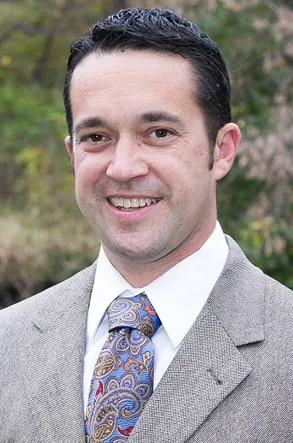From the Front Lines: Public Entities

Mitch Backes
Commercial Lines Producer
Corkill Insurance Agency, Inc.
Elk Grove Village, Illinois
How did you get started at your agency?
I graduated with a degree in safety management and didn’t anticipate going into insurance. But the most intriguing job offer I got when I graduated was from an insurance company. I took on the risk consulting loss control function for several years—I enjoy that type of approach.
Over time, I ended up having opportunities to go into the agent side of things, but I probably approach things differently than other agents in that I come at it from a risk management standpoint. It’s not always about the price and the coverage as much as it is the holistic approach of how we’re dealing with risk. I was doing that for about five years on the sales side and ended up being offered a leadership role at Corkill Insurance Agency, where I’ve been for 10 years now. I’m the head of our public entities department, a team of seven people.
Why public entities?
We had a producer on the group benefits side of things who insured a couple special districts. We had good relationships and got a referral on the property-casualty side, so we were able to figure out how to do public entities in a comfortable environment, or at least get started in that direction. After we’d done it a couple times with existing group benefits clients, we realized that we enjoyed it and that it was something we wanted to pursue. We started building our service platform around it.
Our agency isn’t just public entities. We have three locations with more than 90 employees, and a lot of what we do is generalist insurance, with a handful of other niches. But we like public entities because it’s a more collaborative approach with the buyers. If I’m insuring two plumbers, one might not want to share the secrets with the other because they’re competing. The public entities side of things is more of a community of prospects that always share how to do things better. We enjoy participating in the associations and being part of that conversation. It’s got more of a team feel to it than some other niches.
Biggest public entities challenges?
Building the expertise. Jumping right into it would be difficult. It’s nuanced insurance coverage. There are a lot of different laws, and they affect how you have to treat payment when someone like a firefighter or police officer is out on a workers comp injury. The laws in Illinois are different for some employees, so there are nuances from a benefits standpoint: For example, how do we handle retirees? It’s specific information that takes a while to get your arms around.
That’s one barrier to entry, but beyond that, one of the things that is different in the sales process is that if you’re selling to a business, you probably have an owner or controller or a decision maker and you set your approach toward that individual. In public entities, the final decision makers are a board of trustees that generally meet once a month, and often you never talk with those people. You talk with the city administrator or something along those lines, and you never know where the decision is being made. In some cases, it can be the city administrator who makes decision, and the board approves it. Or the administrator is just the information gatherer, and the board makes the decision. It’s less of a known commodity—where the decision is being made and where you’re setting your sales process up to engage somebody.
Biggest public entities misconceptions?
On the agent side, maybe a local agent insures the plumber and the auto dealer, and the church in town and they think, “I know how to insure different things.” But public entities requires a separate knowledge base. The misconception might be that there’s not a lot of learning involved. It takes dedication and time and you have to be willing to put in hours with the associations and trustee meetings you may be asked to attend at night after hours.
On the municipality side, while many are very good about bidding their insurance on a regular basis and knowing what their options are, equally as many have the idea that all insurance is basically the same. There are more carriers writing public entities every year, at least in Illinois. The options for coverage continue to grow, so the idea that “What I have is basically what everybody else is offering” isn’t the case.
Future of public entities?
More competition. The opportunities for public entities continues to grow as the number of carriers continues to increase. What also continues to increase is the services that agencies are willing to include. This is always changing and improving, whether it’s online training or making safety consultants available to clients.
Favorite public entities success story?
A couple years ago, a few of the fire protection districts I insure were having issues providing benefits to part-time or volunteer employees—benefits that were similar to the full-timers, like group health or retirement. The fire districts wanted to be able to provide something like that. Through networking, I met a grant writer who was good at securing those types of benefits, so I got a group of four customers together—all fire districts—and with this grant writer we were able to write a grant of more than $1 million to pay for these benefits over a period of three years. Our differentiator is the non-insurance solutions we provide. It comes down to being a point of contact that helps each organization in different ways.










